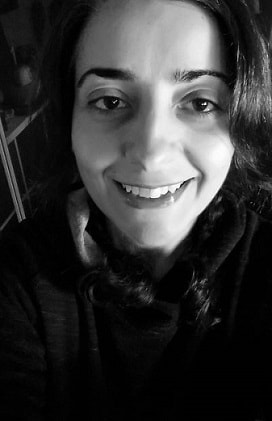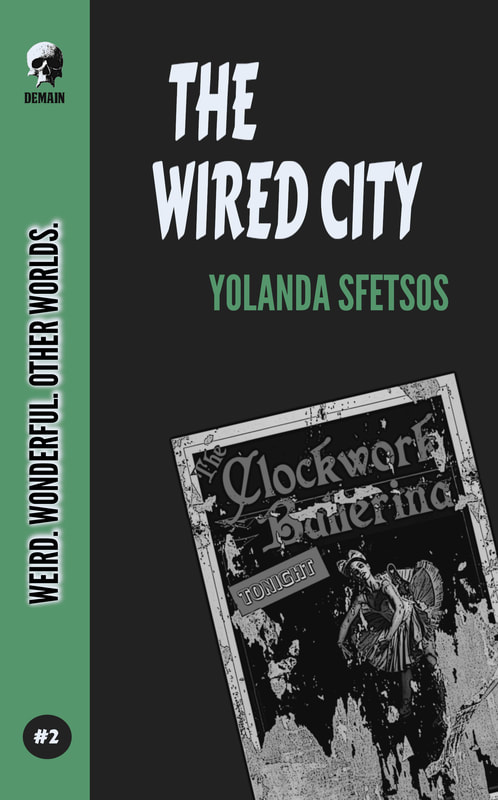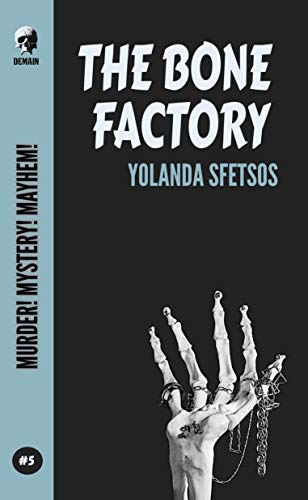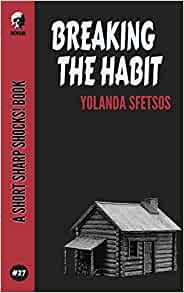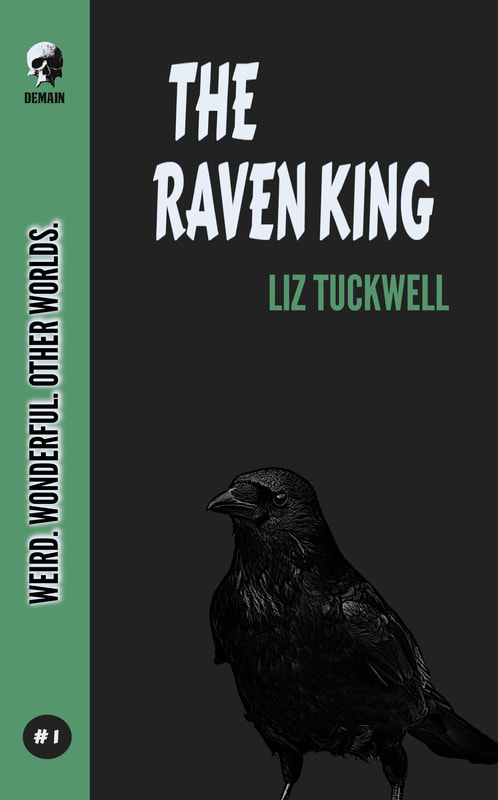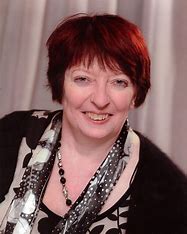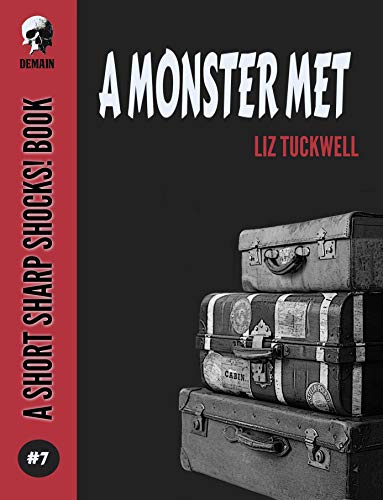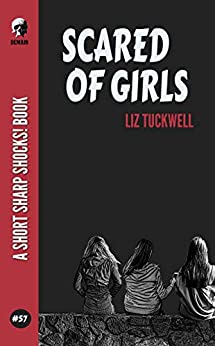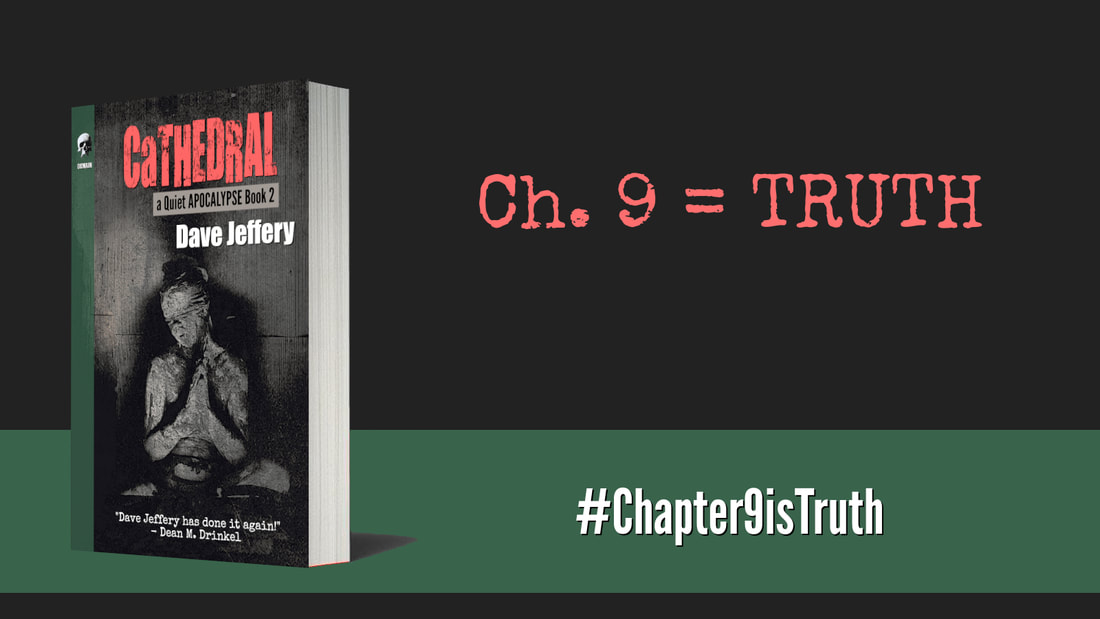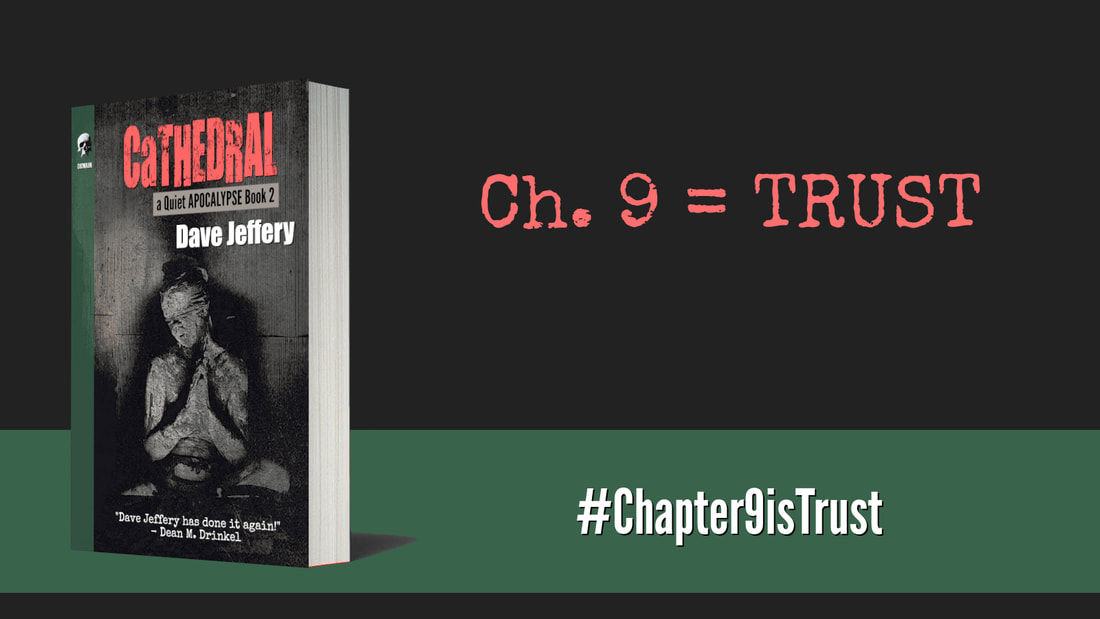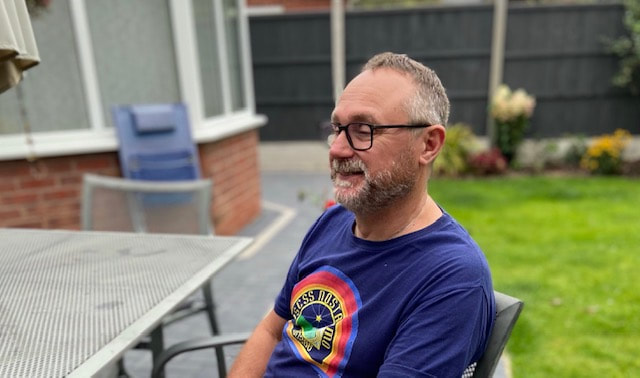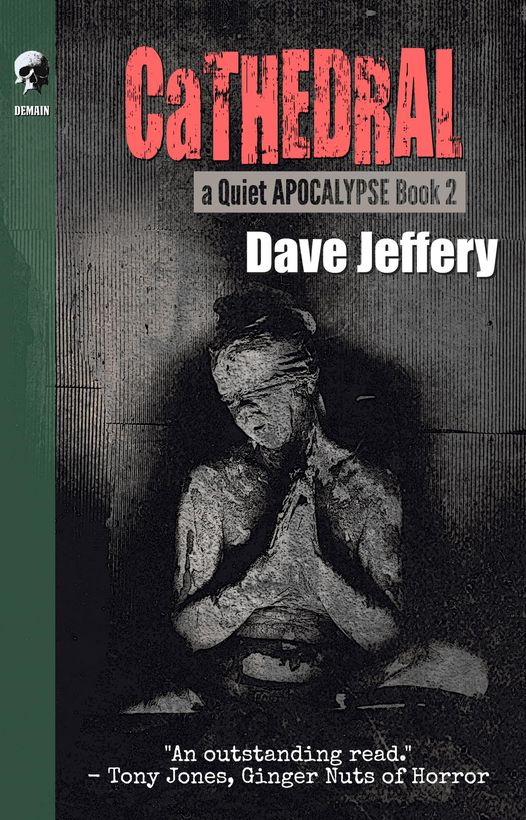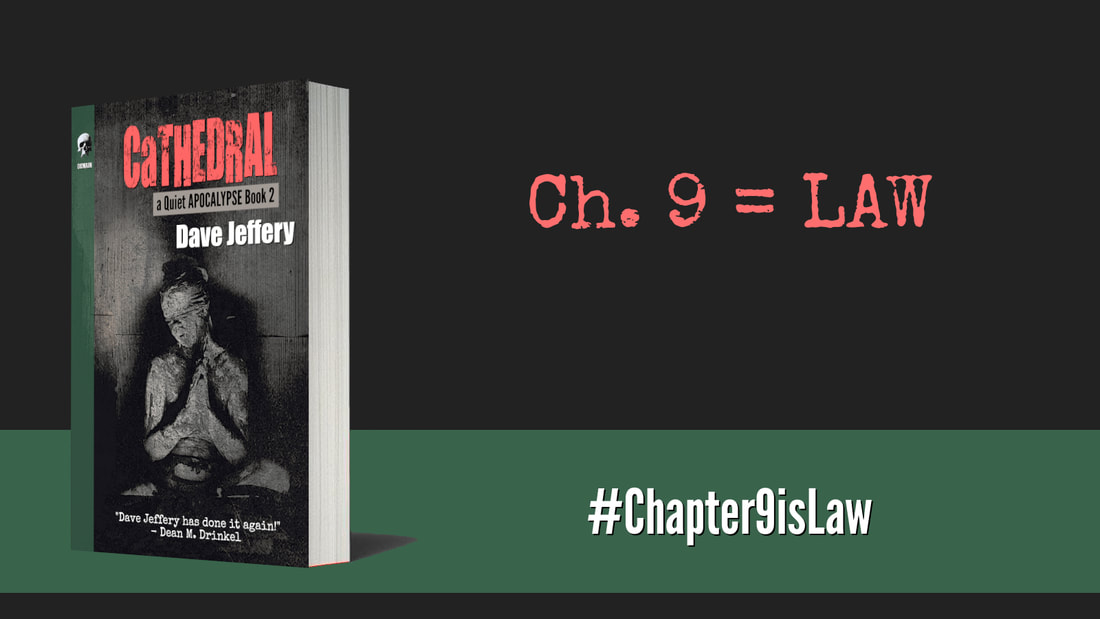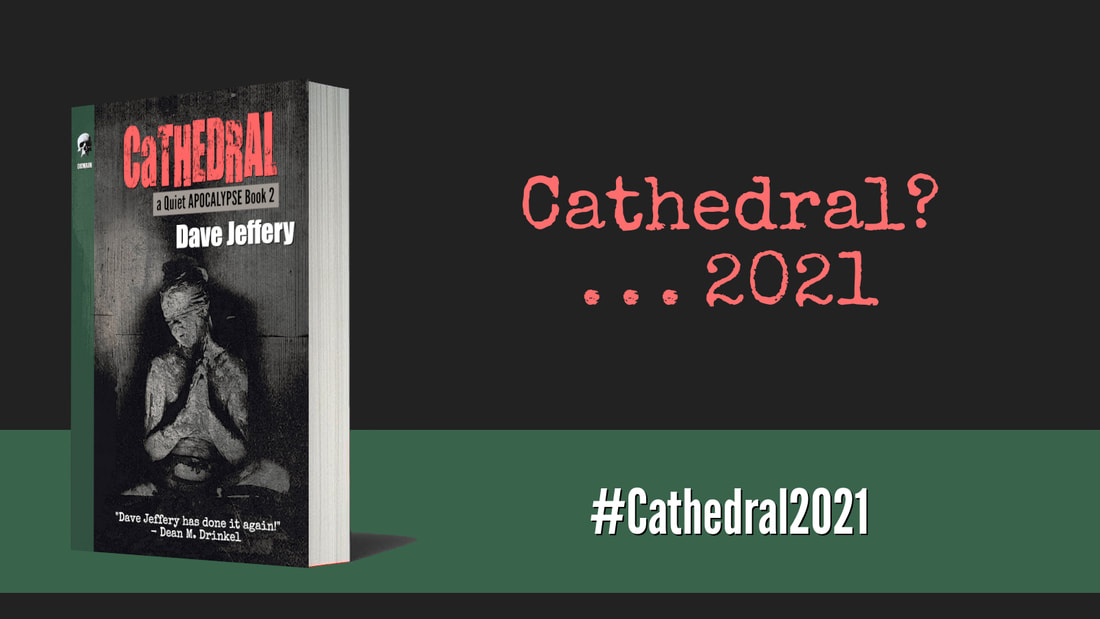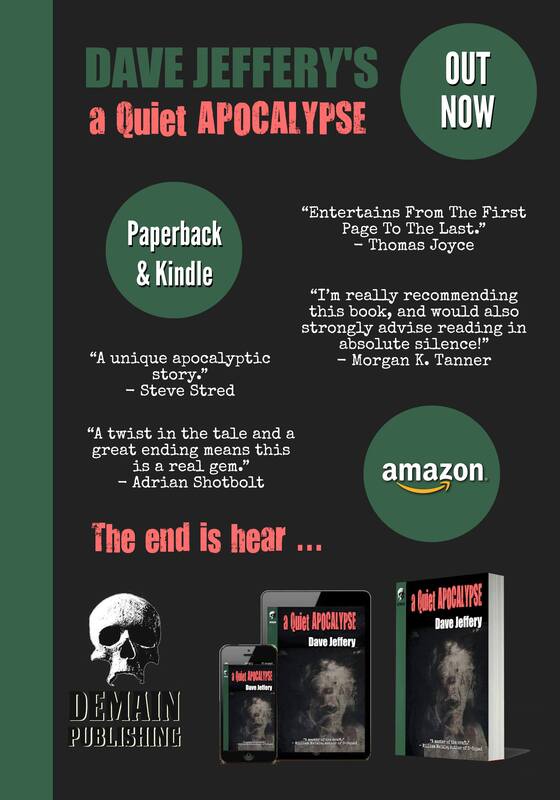|
|
|
January 29th also sees the publication of Yolanda Sfetsos’ The Wired City which is Book 2 in our new Weird. Wonderful. Other Worlds’ series. The cover is by Adrian Baldwin. Over the Christmas / New Year period Dean and Yolanda (who also has Short Sharp Shocks! AND Murder! Mystery! Mayhem! Books under their belt) sat down and talked about this new story.
DEMAIN PUBLISHING: Happy new year Yolanda! Welcome to the new series…for those that don’t know you (yet!) can you tell us about yourself… YOLANDA SFETSOS: Hello! Great to be back and yes, happy new year to you too. Well, I live in Sydney, Australia and spend a lot of my day lost in fictional worlds. Sometimes they’re mine, other times they’re not, but I love to lose myself in stories. It’s the reason I became a writer. There was nothing else I could do, not when ideas started turning up inside my head when I was a kid, and the characters wouldn’t be quiet until I told their story. Being a writer has always been a part of who I am. DP: Me too! What was your first introduction to the fantasy / sci-fi / weird genre? YS: Like most people my age, Star Wars was one of my earliest introductions to sci-fi/fantasy. I was a little kid when Episode IV came out and can still remember how amazing it was to experience this movie. After that, anything that came along featuring robots, space and an interesting but weird ensemble of characters caught my attention. DP: Definitely, I’m definitely a Star Wars guy 100% but also love Star Trek and I’d love to write something in that universe one day, I’ve got a couple of ideas for novels, I also wrote a spec episode of The Next Generation when I was a kid which is in a drawer somewhere but a film, that’d be the ultimate…anyway, anyway, tell us about your novella… YS: The Wired City is a story about a bored android who wants to live a better and more exciting life. When she stumbles on a mysterious classifieds message, her life gets a huge boost of adventure. A LOT more than she ever imagined. This is a story that I’ve wanted to tell for a while, but it didn’t come together until last year. One night, I was wondering if I should trunk the idea, when suddenly—Tolliver decided to speak up and tell me all about her adventure. After that, the story came together very quickly and I really enjoyed writing it. DP: And we enjoyed reading it so well done. Did you have to do a lot of research before writing? YS: Most of my research for this one was about mechanical brains, androids, cyborgs and Mars. I did all of this online. The internet can be a very helpful creature sometimes. Besides, I’ve been doing robot research for years. DP: Ah, then I guess you didn’t find the story particularly difficult to write? YS: Not really because I LOVE robot stories and have always wanted to tell one of my own. This is my love letter to a genre I’ve enjoyed and have found fascinating since I was a kid. DP: What would you say is your biggest creative success to date? YS: My biggest, personal success is having the ability to write. Telling stories is one of my favourite things to do and I feel very fortunate to be able to do it. DP: And you do it very well – which has been proven by the great reviews you’ve received for your DEMAIN titles…with regards to the WWW! series – what does ‘weird’ mean to you? YS: To me, ‘weird’ is pretty much anything that isn’t considered mainstream. It’s a label that people put on something they don’t understand. I find most of what’s considered to be weird to be very interesting and even beautiful in its own very unique way. DP: That’s great and I’m with you on that. Creatively is there anything you’d like to do that you haven’t yet achieved? YS: I would love to write a cosy mystery one day. One featuring an amateur sleuth who loves tea, books and cats. Ideally, I would like to keep the supernatural out of this story…but I know that’s an almost impossible thing for me to achieve. LOL. DP: Haha – I know what you mean, there’s so many stories I start writing which are meant to be ‘calm’ but by the time I’ve finished them they’ve become a very very different beast. I’m guessing writing isn’t a short term career for you? YS: Always a long-term thing for me. I can’t imagine not writing. I mean, where would all of these ideas trying to burst out of my head go? 😊 DP: True, true…trying not to end on a depressing note, how are you handling all the covid restrictions / lockdowns? YS: I can’t believe it’s 2021 and we’re still in the middle of this Covid-19 nightmare. I’m a homebody, so the lockdown hasn’t been that much of a problem. As long as I get to go out for a daily walk, I can handle spending the rest of my days inside writing, reading, watching, and hanging around with my husband and cat. Sounds ideal! Great to speak to you again Yolanda…all the best with The Wired City. If you’d like to connect with Yolanda direct: Website: www.yolandasfetsos.com Twitter: https://twitter.com/yolandasfetsos Goodreads: https://www.goodreads.com/yolandasfetsos
0 Comments
On the 29th January DEMAIN will be releasing the first two books in a new series called: Weird. Wonderful. Other Worlds. The first title is The Raven King by Liz Tuckwell who is already part of the DEMAIN family with two Short Sharp Shocks! to her name. The covers and general branding for the series is by Adrian Baldwin. A couple of days into the new year Dean and Liz spoke about this new book and exciting venture.
DEMAIN PUBLISHING: Happy New Year Liz! Welcome back to DEMAIN and congrats to you – kicking off the new WWW! series in style. For those that don’t yet know the Weird. Wonderful. Other Worlds. titles will have a very broad brief covering a bit of fantasy, a bit of sci-fi, a bit of weird…more on that as we talk, let’s first remind our readers a little about yourself and why you became a writer. LIZ TUCKWELL: Happy New Year! Yes, I’m Liz Tuckwell, I’ve only started writing seriously since 2011. I’ve always been interested in writing and wrote a very bad children’s novel when I was thirteen. English was my best subject at school. But life and work took over for a long time and I stopped writing. Then in 2011, I went to a seminar where the speaker was talking about doing what you loved. In her case, it led her to starting a smoked kipper business (each to their own). That had a big impact on me – what did I really want to do? The answer - of course - was write, so I started writing again and attended writing courses. I went part time at work then which helped to get me started again. I do regret getting distracted and giving up writing but tell myself the old cliché – better late than never! DP: Dead right. What’s your background Liz and has that influenced you as a writer? LT: I grew up in South East London/North West Kent, so I think London has had a big influence on me plus having airport and ports close by to fly away to other countries. I realised that London wasn’t the centre of the universe when I studied for my degree in Manchester. I’m very much a city person. My feeling about the countryside is that “it’s a nice place to visit but I wouldn’t want to live there”. That’s why urban fantasy is one of my favourite sub genres. I actually did my dissertation on science fiction, it was called “Images of Women in Science Fiction” and featured Ursula K Le Guin, Joanna Russ, Isaac Asimov and Robert Heinlein. DP: Really? I never knew that, I’d love to read it…mine was about the Salem Witches and I’ve always wanted to revisit it and completely rewrite the conclusion…anyway, so your first introduction to the fantasy… LT:…fantasy/sci fi genre was through my dad who liked to read science fiction. I read the books he had lying around. These were mainly what you’d call classic science fiction, I suppose, Robert Heinlein, Isaac Asimov etc. I remember going to the adult library to pick out books for him. Librarians were more relaxed in those days about children going into the adult sections. So, I got to know the science fiction shelves of my local library very well. There used to be a Woolworths near the library that had a stall full of remaindered paperbacks from the USA. I was first introduced to Fritz Leiber’s Gray Mouser and Fafhrd and other sword and sorcery authors through those and some other great SF novels such as the Greenwich Village Trilogy. DP: That’s amazing – I need to check those books out as I’ve definitely not read any Leiber before…and your WWW! Book, The Raven King, let’s talk about that… LT: It’s the second story I’ve written about [characters] DI Lis Liszt and DC Jaz Sharma although it’s the story of how DI Lis Liszt and DC Jaz Sharma met and the start of the Supernatural Crimes Squad. The first story was called A Dead Mermaid on Eel Pie Island and appears in the MCSI: Magical Crime Scene Investigations anthology. It’s set in a world a few years after the ‘Great Unveiling’. This was when supernatural creatures revealed themselves to the world after centuries of hiding. The world is still getting used to the fact that they and magic really do exist. I thought that the Tower of London would make a great setting for a story and once I learnt more about the ravens, well, they had to be in it as well. The ravens disappear from the Tower of London and the fledgling Supernatural Crimes Squad has to work out what is going on and who is behind this. DP: Yes I think that was a particularly clever angle…I’ll have to check out the first story (as I’m sure a lot of your readers will once they’ve read The Raven King). Did you have to do much research before writing? LT: I had to do a fair amount of research. I researched the ravens, Welsh mythology, Welsh, and the Tower of London. Ravens are amazing creatures. I hadn’t realised that they really can talk. Google is my best friend for finding useful and interesting websites. I visited the Tower of London to get a feel for the layout, the buildings and the sense of the place. Looking at maps was not enough. It’s a fascinating palace (and it is a palace not just a fortress as I learnt during my research). There was a documentary series about the Tower on TV at the time, which I watched purely for research purposes of course. Luckily, the ravens featured a lot in the programmes. DP: I will admit that there is a plot line / character in your story which has affected me profoundly since I read it about a certain period of history I’m really into and I’ve been thinking about it a lot now – I won’t say what as I don’t want to ruin it for anybody else but I’ve made a connection between two points / episodes in history which as far as I know have never been linked before so I’m going to do some more research on that…thank you very much! Um, anyway, did you find The Raven King particularly difficult to write? LT: I found it difficult to write as it’s a prequel and I was trying to keep it as realistic as possible while being a fantasy story. I found a prequel much harder to write than starting from scratch because you have to make sure that you don’t contradict what you’ve already written and there aren’t any discrepancies. I regretted a couple of the decisions I’d made in the first story but too late now! It’s very tempting to stop and spend ages looking up a query rather than getting on with the story. DP: That’s so true! Can you tell us about books / authors who influence you? LT: I love Ben Aaronvitch’s Rivers of London series, that’s obviously been an influence on this novella. His sense of place and the interesting characters he creates is inspirational. I also like Charlaine Harris, China Mieville and Jasper Fforde. Charlaine Harris was one of the earlier writers about vampires and I loved her take on them. I think China Mieville’s The City and the City is a great book about the amazing capacity of human beings to see what they want to see. Jasper Fforde has such a fantastic imagination and he makes the impossible seem plausible and logical especially in his later novels such Shades of Grey (I bet he wishes he’d chosen a different title for that one), Early Rising and The Constant Rabbit. DP: I wonder how many customers have picked up Jasper’s Grey rather than the slightly more famous one and then got to the end and thought “hang on, what the hell is this?!” ha ha…do you have a favourite ‘weird’ author / book / film? LT: I’m not sure that I do. I really like China Mieville as I mentioned before. I read the ‘classics’ by H P Lovecraft and Clark Ashton Smith when I was younger. Some of the authors I like who can be considered ‘weird’ are Neil Gaiman, Shirley Jackson, Angela Carter, and Tanith Lee. One author who’s not normally associated with ‘weird’ is Daphne Du Maurier but I think her story, The Birds, is brilliant and memorable, and much better than Hitchcock’s film. DP: That’s a great call. It is a cracking story and I’ll have to find some time to read that again. What does ‘weird’ mean to you? LT: To me, ‘weird’ means old weird like H P Lovecraft and Clark Ashton Smith although I realise there’s a lot more variety in weird fiction than that. China Mieville described it as ‘tentacle fiction’ which does sum it up for me. It’s a crossover between horror and fantasy with a dash of science fiction. I think it’s fair to say that some horror fantasy is also weird fiction but not all weird fiction is horror fantasy. One sub-genre of ‘weird’ fiction I like very much is occult detective. I love the nineteenth century occult detective stories and modern ones like Jim Butcher’s The Dresden Files and Randal Garrett’s Lord Darcy stories. I especially like the Lord Darcy ones because they’re also alternate history. I think my Lis and Jaz stories fit into that although I haven’t written a story involving tentacles yet. DP: Personally I’m not into alternate history too much but a few years ago I did read and enjoy a great deal Richard Dreyfuss / Harry Turtledove’s The Two Georges and when I moved to France a friend gave me a book by Ben Elton called Time And Time Again which really captivated me and had a cracking twist…what do you think draws readers into the genre…are they looking for something specific? LT: I think readers are looking for stories about non-traditional monsters in a universe where the protagonists are pretty insignificant and sometimes powerless against malign creatures and forces they don’t understand. That’s certainly a mood for our current times. I feel there’s a surfeit of vampires, werewolves and zombies at the moment, so to have other monsters is refreshing. That’s so true Liz! Thanks a million for your time. The best of luck with your WWW! And congrats again for being the author to launch the series. If you would like to connect with Liz direct: Website: https://www.liztuckwell.co.uk Twitter: https://www.twitter.com/liztuckwell1 FB: https://www.facebook.com/LizTuckwell1Author January 29th sees the publication of Dave Jeffery’s Cathedral (cover by Adrian Baldwin; central art piece by Roberto Segate). As Lockdown 3 was about to hit, Dave and Dave sat down and talked about it.
DEMAIN PUBLISHING: Great to speak to you again Dave, glad that you’re well and safe. We’re here to talk about Cathedral…the story is set in the same universe as your previous (and critically acclaimed) A Quiet Apocalypse – is it a sequel? DAVE JEFFERY: Hi Dean, great to speak to you too. To answer your question, no there are no characters from A Quiet Apocalypse featuring in Cathedral. This is one of the things I enjoy about this particular universe, the ability to have stories that could be happening at the same time as each other, just like real life, is liberating as a writer. There are references to places and certain events that link the books, but its chronology is deliberately ambiguous. DP: It’s a very expanding / expansive universe and quite honestly thousands of different stories could be told. Congratulations on what you’ve created. I suppose for those that haven’t yet read A Quiet Apocalypse can you tell us a little about it? DJ: Sure. A Quiet Apocalypse is set in the aftermath of a pandemic. A mutant strain of meningitis (MNG-U) has killed most of the world’s population and left the majority of survivors with profound deafness. There are a few hearing survivors, and they are hunted as a commodity for those affected. The story is told from the perspective of Chris, a hearing survivor enslaved by Crowley - a deafened farmer. It explores the brutality of slavery and the fears associated with both physical and psychological trauma. It is a very dark story and I’ve been stunned by reader response, with many reviewers likening its emotional impact to that of seminal greats like The Road and I Am Legend. DP: You thoroughly deserved the plaudits Dave, it’s a great story with really believable three dimensional characters and I don’t believe I’ve read one bad review – so well done! In Cathedral who are your characters? DJ: In keeping with the first book, the narrative is told in first person, this time from the perspective of Sarah, a citizen of Cathedral. Like all citizens, she has been deafened and quietly continues to mourn the loss of her family and best friend. Sarah is compliant and generally accepting of the ritualistic -and often brutal - laws of Cathedral but is left with a sense that she is missing something in her life. Her best friend, Alice, holds what is known as a High Role and is a proponent of Cathedral’s ethos. Conflict arises when Sarah falls in love with Paul, a man who has been rescued from the wilderness. As relationships form part of a quota system, Sarah must share the man she loves with others for the betterment of the whole community. The book explores Sarah’s battle to keep both her lover and her place in Cathedral, and the results of this conflicting scenario. DP: Thank you – now, without giving any spoilers away (I know this one might be difficult though I am genuinely interested) – somebody called Abraham Maslow features heavily in Cathedral. He’s a real person right? DJ: Yes. Abraham Maslow was an American psychologist who created a theoretical framework based on chronologically meeting human need. At the bottom of a five-tier pyramid is physiological needs such as food, water, warmth etc, and at the apex is the concept of self-actualisation, or the ability for an individual to achieve their full potential. In order to progress, Maslow theorised that a person must have each need met in his proposed hierarchy. Of course, for the purposes of Cathedral’s version (or Maslow’s Law as it is known in the city), the top two tiers that foster individuality are removed for the betterment of the whole community. The resulting trapezium shape this creates is a symbol of order in Cathedral and features on the city flag, and the doorways of the arboretum are fashioned in such a shape as a reminder to all that they are always under the influence of its doctrine. This removal of individual achievement ultimately creates an intriguing conflict between protagonist and the world they inhabit. DP: I honestly haven’t found many horror authors who have gone to this level of detail in their stories Dave and this is why I and everybody else love what you have created with the A Quiet Apocalypse universe…I’m assuming that a lot of research was required? DJ: As with A Quiet Apocalypse, I drew upon my existing knowledge as a mental health professional to explore Maslow’s Hierarchy of Needs and the adaptation of it to meet the skewed ethos of Cathedral. It was an odd thing to pick apart such a well-established and lauded framework so that it became something at odds with the original ethic established by Maslow. However, the more I worked on it, the more right it felt for the story. There was no going back once I started. DP: I bet – so did you find any of the scenes particularly difficult to write? DJ: Well, there were a few scenes that had me wincing, one even had me questioning whether I should edit it out because it was too barbaric. There are several bleak core concepts in the origins of Cathedral as a city and the ethos it has adopted. One of the overarching issues is a universal (yet unfounded) belief that people from the Deaf Community were carriers of the original disease and are therefore branded Harbingers. If harbingers are captured, then they are brought back to the city where they are ritualistically killed in a ceremony known as Retribution, a cathartic outpouring of hate that is inflicted upon the poor soul who is caught. The scene is pretty nasty but I feel there is counterweight when we look at Sarah’s rationalisation of events and the impact this has on Paul. DP: Considering the times we now find ourselves in and though you began writing Cathedral before the Covid pandemic do you think what you are creating in your universe can be seen as a metaphor for the virus / current landscape? DJ: I think any book written during such a time is bound to become a product of events. Cathedral (and A Quiet Apocalypse for that matter) try to be as realistic as possible in terms of human interaction and response to adversity. Cathedral explores how this is done on a grander scale, a city with radical policies to prevent a return to the chaos that is the immediate aftermath of World’s End. But like many human endeavours, the cure can sometimes be as harmful as the disease. DP: Too true…so what next for the A Quiet Apocalypse universe? DJ: The Samaritan, the third book, is already written and will hopefully be released later in 2021, if not early next year. Again, this will be a first-person narrative from one of Cathedral’s search units who becomes trapped in the wilderness beyond the city walls. Of all the books, this is possibly the darkest in terms of content. DP: That sounds exciting…do you think that there might be further stories? DJ: Okay…there is also another, super-secret project that is also greenlit for late 2021 that may well feature a story set in Cathedral, certainly an origin tale, but at the moment I’m not at liberty to give out any more information than that, sorry! DP: Ah, spoilers! Love it…finally then, 2020 was a very tough year for most, how did you handle it and did it affect your creative work? DJ: I was fortunate in that I’d literally only just retired in February 2020 and had a long ‘to-do’ list for the year, particularly around writing projects. I also have two young adults in the house who needed my support, so in all, I have been lucky in that my focus was predetermined. However, I am aware that not everyone has been so lucky, and my heart goes out to all those affected by this terrible disease. Dave, thank you for your time and all the best of luck with Cathedral. You honestly deserve it. Cathedral is released on the 29th January but is currently available for pre-sales. If you would like to connect with Dave Jeffery direct: Website: www.davejefferyauthor.com Twitter: @davebjeffery Instagram: davejeffery8420 Facebook: Dave Jeffery Writer |
CategoriesArchives
July 2024
AuthorDean M. Drinkel |
